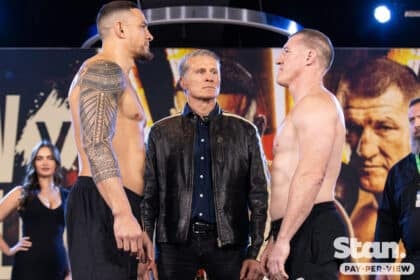In the dynamic and ever-changing media industry, the pursuit of equality and representation remains paramount, something that Fiona Roberts, managing director at MiQ knows well, having been at the forefront of advocating for these crucial values for many years. From her early days of passionate engagement with newspapers to her rise in advertising, Roberts has consistently championed diversity and inclusivity.
Ahead of B&T’s Women In Media Awards, presented by Are Media, we spoke with Roberts on her journey, the impact of diverse leadership, and her dedication to challenging stereotypes within the industry.
Get tickets to B&T’s Women In Media Awards, presented by Are Media, now!
B&T: What inspired you to pursue a career in media?
Roberts: I loved newspapers when I was growing up. They were an item in our household that we would fight over the sections on weekends when it arrived. Journalism and, in particular, investigative journalism in print, I was completely obsessed with. Unfortunately, academia wasn’t my strong suit, so the next best thing was a role in advertising. The first day I stepped into the NewsCorp Offices in Surry Hills way back when was so exciting. I was 21 and beyond thrilled to be hired as a classifieds account manager. I haven’t looked back since as it felt like I found my people and my place.
B&T: What are the benefits of having women in leadership positions?
Roberts: I think all types of diversity in leadership are of huge benefit to any business. We all have different lived and learned experiences, and being able to bring those differences into the workplace to inspire others and drive stronger business outcomes, along with diversity of opinion and decision making, is what creates a company’s culture. Culture is what drives employees to want to work and stay with your company. Attracting high-performing talent who are committed to being a part of that culture is crucial to any business’s long-term growth plans. It’s all connected.
B&T: Who has been your biggest role model that has helped you get where you are today?
Roberts: I’ve had a number of strong male and female leaders in my career, as well as mentors (Chris Freel, Jodie Smith, Karen Halligan & Paul Kent to name a few). They have all played their part in various ways as role models. Whether it be talking me off a ledge after a particularly stressful quarter or day, providing me with direction and guidance to be the best version of myself when I haven’t shown up how I should, or simply being my advocate in rooms I’m not in, I am grateful to them all.
Most recently, Jase Scott, our CEO APAC, has been a huge support and role model for how to be a leader with impact. He has helped me gain a greater perspective of the scope of what I can achieve.
B&T: What advice would you give to the next generation of women in media following you?
Roberts: Don’t get caught up in the noise that inevitably comes from those around you on who or how you should be. Be you, be unapologetic about it and don’t make excuses. Everything in this industry will feel like it’s in a constant state of change, if you try to fit in, the moment you do, the next big thing will come through and you’ll have to fit in with that. Don’t fit in. Stand out.
B&T: If I were to ask what pivotal moment in your career pushed you to where you are now, what would it be and why?
Roberts: In my late 30’s I felt a bit lost in my career, and probably a bit jaded about what long-term opportunities existed for women in our industry as we get older. I had seen time and again women in their 40s get made redundant from roles and really struggled to get hired again as they were seen as ‘too old’. Which is ridiculous, but the truth is our industry is very focused on the younger generations coming through and not always as respectful of the experience that comes with age. When I started at MiQ I went in with a mindset to not get too involved, to do the job as well as I could and then clock out and spend time thinking about my exit plan from advertising. Inevitably I took a role at a company that you simply cannot help but get committed to and I remember talking to our Global President Richard Dunmall about how I really only saw myself as having 5 good years left in media because it’s a young person’s game… and the ferocity at which he challenged me on that thinking and the waste of talent as he saw it, created a mindset shift, and a determination that I was going to make not just the next 5, but the next 20 years be the best work I’ve ever done.
B&T: How do we get more women interested in media careers and sticking with it into leadership roles?
Roberts: I think we need to provide more pathways for women to enter media careers. I still see a lot of stereotypes being perpetuated around the roles where women enter our industry and we can be doing a better job of that, both in challenging biases and also in how we market the industry. Keeping women in through to leadership roles i think has to do with ensuring we are providing enough challenging environments for women to develop in. That’s not to say we need to create more leadership roles for women specifically, just that we need to ensure that women stay engaged and don’t stagnate with limited learning and growth opportunities.
B&T: What mistakes have you made along the way, and what did you learn from them?
Roberts: Gosh, I’ve made so many mistakes… and missteps along the way to where I am today. The biggest mistakes I’ve made are tied to either not believing in myself enough or, perhaps, at times, believing in myself too much.
What I’ve learned is don’t get too down, or too buoyed by the noise around you. Stay focused on your strengths, your weaknesses and when you’re in a leadership position, how you use each of those to engage with and motivate others.
B&T: What action have you taken to challenge gender stereotypes in your projects?
Roberts: As a proud member of the LGBTQIA+ community, I believe there are more than just two genders that exist for people to identify with, and so in my day to day, I try to take a leadership position in not only challenging your standard gender stereotypes but also challenging the concept of simple male and female gender types existing to be stereotyped against. We’re all people at the end of the day. What I am like and how I behave has very little to do with the fact I identify as a woman, and I think we’re getting much better at recognising that as an industry, especially with younger generations coming through.
Get tickets to B&T’s Women In Media Awards, presented by Are Media, now!









